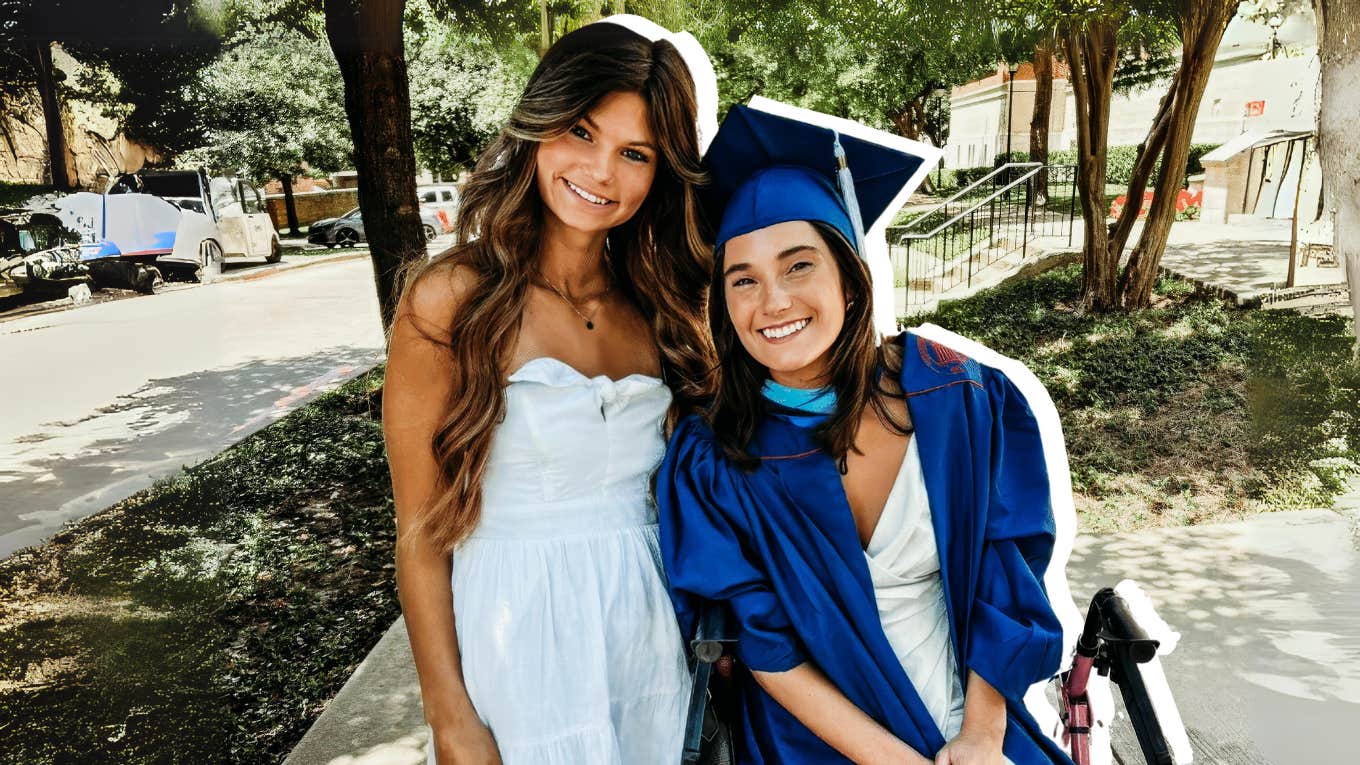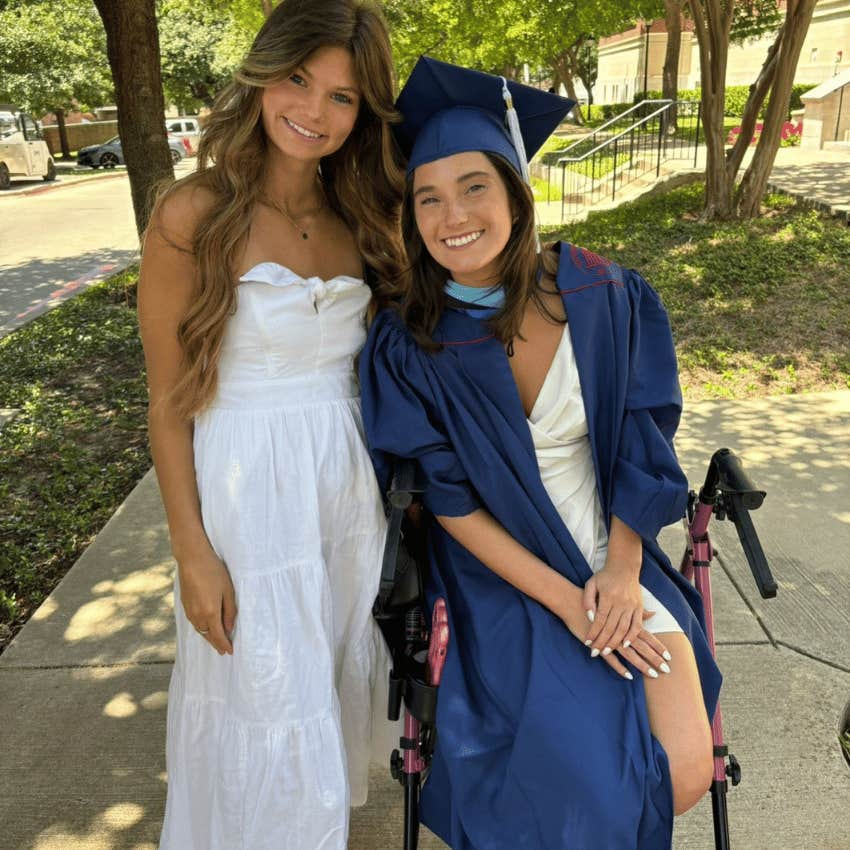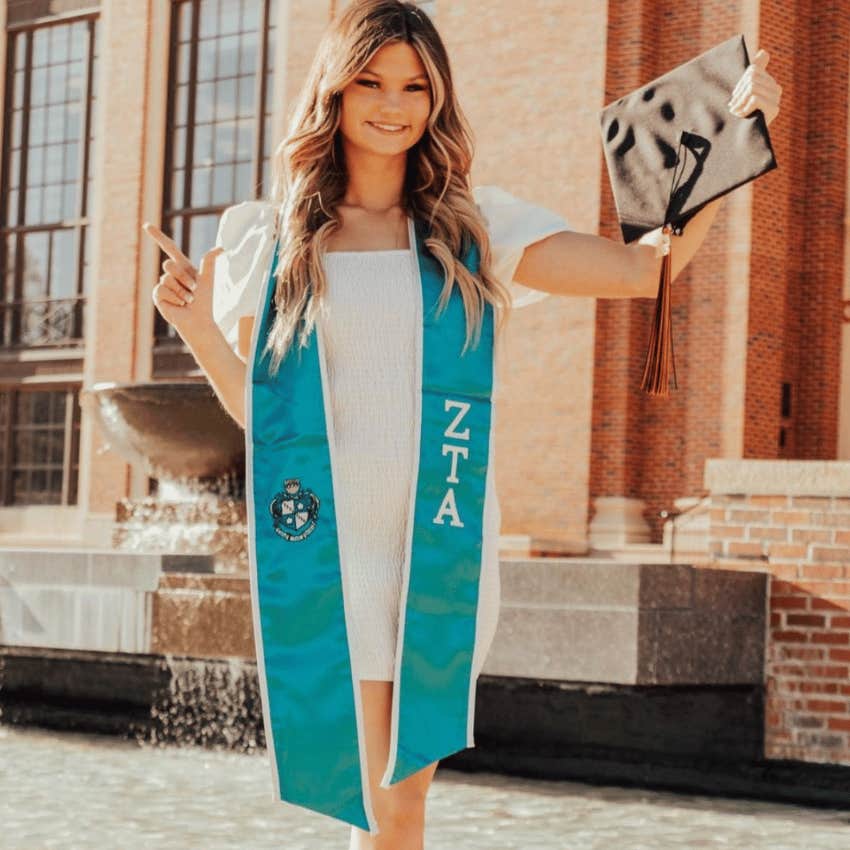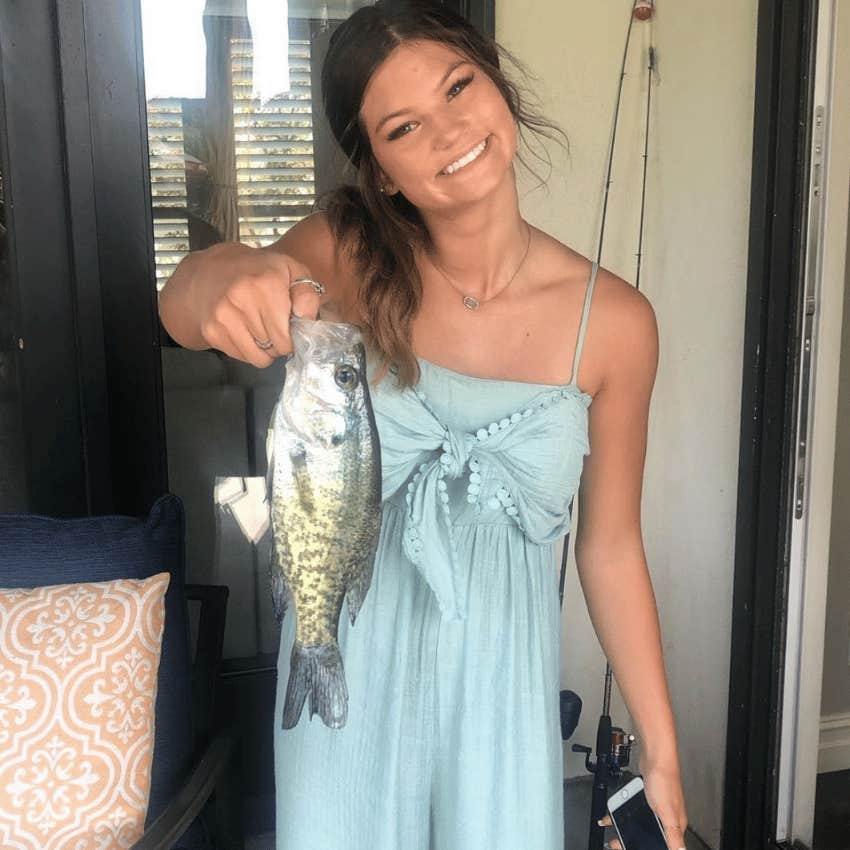The Symptom I Ignored At Cheerleading Practice Turned Out To Be A Rare, Life-Altering Genetic Disease
Kiersten Riggs is on a mission to break the stigma associated with living with a disability.
 Photo: Courtesy Of Author
Photo: Courtesy Of Author Growing up, I was a cheerleader and cheerleading always came easy to me. I was constantly mastering new tricks like backflips and was a “flyer” for all the stunts. But something shifted back in 2018 when I was 16.
I couldn’t do the same routines that used to come so easily. I kept falling during our stunts and when we ran stairs in the stadium, I had to hold onto the stair rail. I felt unbalanced but thought I was just getting clumsier as I got older – I didn’t understand why or what was happening.
I also experienced this overwhelming fatigue but chalked it up to the long hours at cheer practice and not getting enough sleep. Yet everyone else on my team seemed to handle our rigorous practice schedule and training just fine.
The fact was, I had been training competitively in cheer for the past eight years, and instead of getting stronger and better, I was getting worse. I asked my cheer coach, “Is this normal?” and when he said “no,” it was the first time I thought something more might be going on.
The symptoms I ignored during cheerleading practice turned out to be something much more serious.
Around the same time, my older sister started stumbling and walking differently. My mom was really worried and thought it was West Nile virus. She put my sister through a bunch of tests at home, including balance tests where my sister would fall over when she closed her eyes.
 Photo of Kiersten Riggs: Courtesy of Author
Photo of Kiersten Riggs: Courtesy of Author
I did the tests, too, with the same results. My mom thought I was just trying to get attention (I always did enjoy the spotlight!) but I thought maybe I had what my sister had. I understood what she was going through because I felt the same things. The real turning point was when both of us took a blood test.
My sister received her test results first and was diagnosed with a rare genetic disease called Friedreich Ataxia (FA).
FA is a progressive neuromuscular disease that causes loss of coordination and mobility. My parents got my test results the day before Halloween. It was a Friday, and I had a big Halloween party the following night, so they waited a couple of days to tell me.
My dad encouraged me to go to the party and enjoy myself, and I had no idea they already knew my fate. The day after the party, they sat me down and told me I had FA as well and to pack my bags because I was leaving that night to go participate in a clinical trial in Florida.
Hearing the diagnosis was, of course, a shock. I was whisked away to Florida and I didn’t have time to process the news at first. But I remember feeling a sense of relief.
 Photo: Courtesy of Author
Photo: Courtesy of Author
Having a diagnosis finally answered some questions. I knew my teammates saw me as the weak link, and now, I had an explanation for why I had suddenly fallen from this elite position on the cheer team. But then it sank in. I was very sad and in denial for a year.
My sister and I responded differently to the diagnosis. I kept silent, did some destructive things, didn’t get involved in the FA community, and just didn’t know how to handle it. Eventually, my sister and I began to lean on each other, and now we help each other navigate adulthood with this rare disease.
My life with Friedreich Ataxia was hard.
I was so tired and had severe brain fog. I would cancel plans all the time and would sit on the couch all day, unable to move. I remember going over to my sister’s apartment one night. While I hadn’t done anything all day, she had worked a full day and then started cleaning her apartment.
I asked her how on earth she was doing all of that with her FA. She told me she started taking a new drug, Omaveloxolone, which was the first FDA-approved medicine for FA, and it was helping her.
I talked to my doctor and got a prescription for it too. Ever since I’ve been on it, I feel like I can be “present” and live a more normal life. It helps with my energy, my coordination is better and my speech is better. It’s brought back my spunk.
 Photo Kiersten Riggs: Courtesy of Author
Photo Kiersten Riggs: Courtesy of Author
Today, I’m 21 and just launched my own social media marketing company.
I graduated from Oklahoma State University in May — a year early! I always knew I wanted to go into marketing and when COVID hit, I started making TikTok videos focused on girl positivity. It was a depressing time for the world, and creating these videos provided a fun distraction for me.
You never know what someone is going through, so I emphasized kindness, and my follower base began to grow. I even started an online support group, and over 1,000 girls joined.
Over time, my content shifted to stories about fashion, beauty, my personal life, and living with FA. In my free time, I love to fish by the pond near my house, take long drives in my convertible, spend time with family and friends, and go two-step dancing whenever I can!
I now have a fire inside me to share my story so that we can continue to increase awareness and understanding of FA and other disabling rare diseases.
 Photo of Kiersten Riggs: Courtesy of Author
Photo of Kiersten Riggs: Courtesy of Author
Over the past year, I’ve spent more time connecting with the FA community through events and social media. I have made some of my best friends within the community and we talk multiple times a week. I also try to offer support to other FA’ers whenever I can, especially newly diagnosed people.
FA is a part of my life, but it doesn’t define who I am. And as long as I can keep sharing my story and raising awareness, I know I’m making a difference.
Kiersten Riggs is an Oklahoma-based social media manager and TikToker living with Friedreich ataxia, a rare, genetic, life-shortening neuromuscular disease. She aims to break down stigma, raise awareness, and foster a deeper understanding of FA and other rare disabling diseases.

